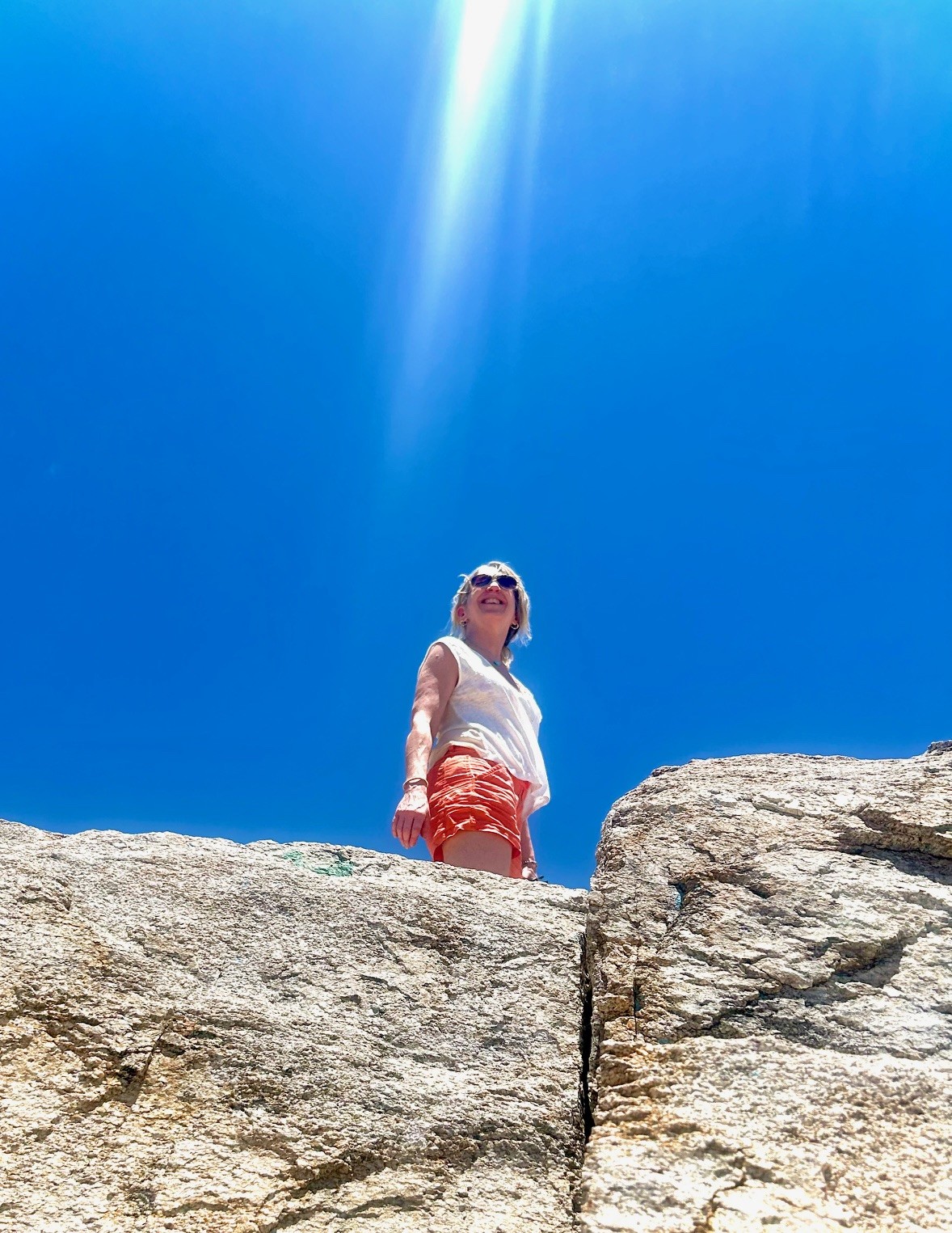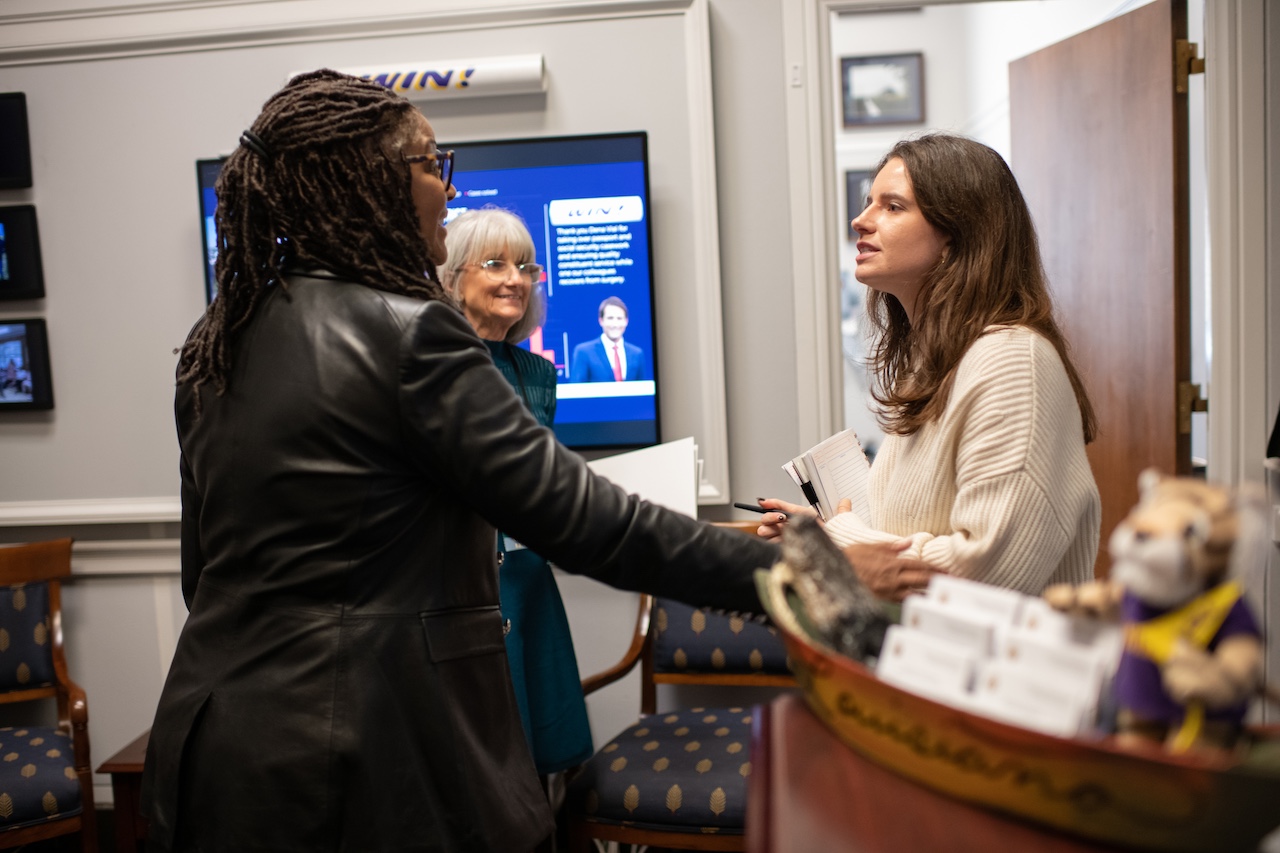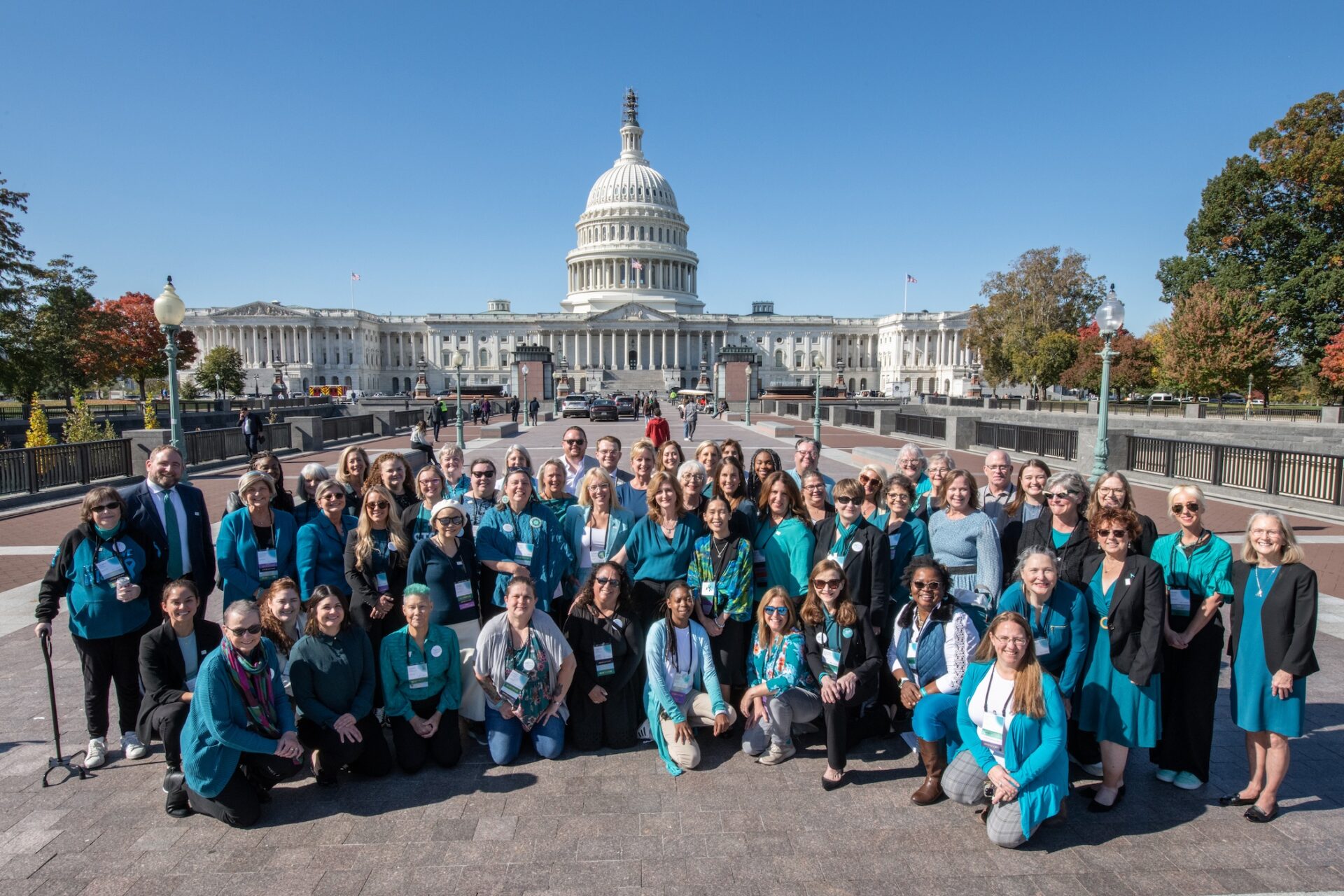To speak with Kimberly Richardson is to feel an instant camaraderie with someone who exhibits both calm and conviction, thoughtfulness and frank talk. She has learned a lot in the past 20 years – running triathlons, running a nonprofit in Chicago focused on small business development, teaching urban sociology as an adjunct professor – and she’s eager to share her wealth of knowledge in a welcoming and productive way.
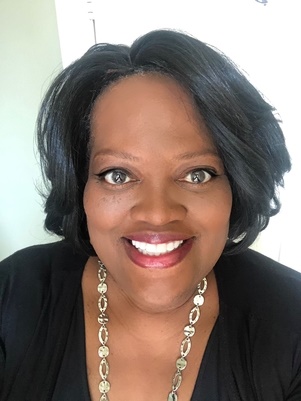
Her goal is to create collaborations between those researching ovarian cancer and those who are surviving it.
“I had a background in economic development research, so looking at basic scientific research wasn’t boring to me,” Kimberly said. “Reading scientific papers, journal articles of other people’s research didn’t throw me.”
What threw her was being diagnosed in 2013 with a rare form of ovarian cancer, granulosa cell tumor, and how she was treated by doctors as she was navigating next steps.
“Well, I guess you’re just unlucky.”
This was the response Kimberly received from her doctor after poring through articles trying to better understand her form of cancer and questioning how she could have gotten ovarian cancer without a family history. Future interactions were no better.
“Do you want to live?” (The response Kimberly received when questioning whether chemo was the right approach for a slow-growing tumor, after being told by the physician’s assistant that she wouldn’t need chemotherapy.)
“Well, Ms. Richardson, ditto.” (The ‘second opinion’ Kimberly received from another oncologist who reviewed her chart with the first doctor’s recommendations.)
“Wow, isn’t this something? This could be a great journal article someday.” (How Kimberly’s doctor referred to her, in front of her, after she ended up in the emergency room due to complications from treatment.)
It was bad enough that Kimberly was fighting a serious illness and dealing with the ravaging effects of chemotherapy. To feel like she was in battle with her doctor was too much. “I was having emotional meltdowns every other hour,” she said.
Kimberly doesn’t want to outright say that her experience was related to the color of her skin, because people around her – men and women, Black and white – would whisper to her “that happened to my grandmother” or “that happened to me, too.” But she does wonder. Especially when she reflects on the very different treatment she got from her primary doctor.
“I got services for therapy and nutrition and acupuncture and mindfulness programs,” Kimberly recalls. “My primary is African American. And it makes me wonder, would I have been in that pool of people that had all those offshoots of support services if she weren’t?”
Kimberly will allow that “what [my oncologist] lacked in humanity, she made up for with impeccable surgical skills.” But she was happy to find another oncologist.
Regaining control, and the right to question
A gruff bedside manner was one thing, but it was the feeling of disempowerment that really got to Kimberly. It was an odd experience, as she describes it, to be someone who is curious and constantly seeking out knowledge in her professional and personal life, and then to not find information on the internet about granulosa cell tumors and be rebuked by her doctor for wanting to know more.
Kimberly reflected on a conversation she had with her oncologist before they parted ways. Her doctor spoke of two different types of patients who receive a cancer diagnosis: one hides under a cover and says, ‘I’ll do whatever you tell me to do.’
“She never mentioned the second type of woman,” Kimberly said. “So I assumed she was speaking about me. The one who’s always asking questions and challenging. That’s the kind of person every cancer patient should be.”
“It was like I was getting a Kanye shrug,” Kimberly explained. “My expectation was that I could advocate for myself and at every turn she blocked those opportunities and dangled my life over my head if I asked any questions.”
So once she got well, she decided to get involved and do whatever she could to ensure that other women didn’t have the same experience that she did – going through a full year of diagnosis and surgery and treatment and recovery without knowing what was really going on inside them.
“I want access to information,” Kimberly said. “I want women to see enough information about treatment options in a language they can understand.”
Breaking down the wall between patients and science
Kimberly also reflected on the fact that her form of ovarian cancer is very rare, and if she could talk to more scientists about it, they might be more interested in doing further research on it.
So she created a set of nine training modules, in collaboration with MD/PhD students, that ultimately helps patients learn how to read scientific papers in order to become research advocates. She’s intent on keeping the learning bidirectional – where patients can learn from the scientists, but also for scientists to be able to learn from the patients.
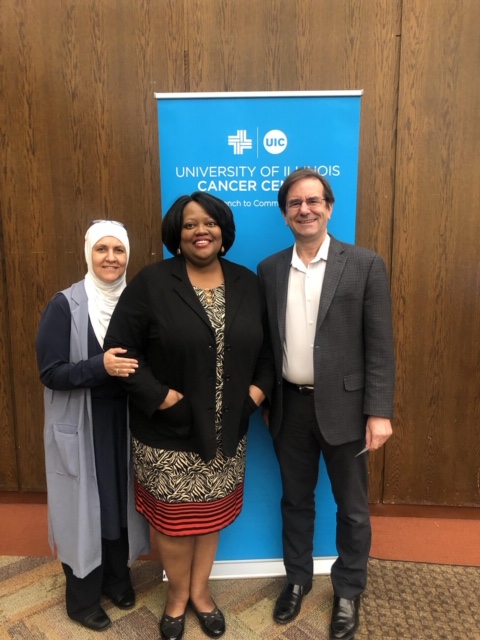
“You’re studying it, I lived it,” Kimberly explained. “No big I’s and little you’s.”
She also knows that it’s critical for scientists to be able to talk about their work in a way that lay people can understand. “Talking to your peers is fine,” she said, “but they’re your competition. They don’t care if nobody hears about your work. The frilly folks out here are the journalists who want to write and tell the world about what you’re doing.”
And what she’s learned is that the scientists are eager to share their work. “They asked me, ‘how can we get closer to you? How can we interact with survivors in a meaningful way? What can we teach you about what we’re doing where you would care enough to stay in a relationship with us?’”
On hope
Kimberly’s passion and commitment to learning has led to her role as a pre-reviewer for the Department of Defense’s Ovarian Cancer Research Program. She believes it’s critical for survivors to be involved in this way.
“When the oncologist says, ‘We don’t know how you got it, we don’t have a cure, we’re trying this treatment,’” Kimberly said, “there’s no hope! But when you connect the survivor to the research, you can see the hope. You can see, maybe not in my generation, but maybe this will help someone in my family.”
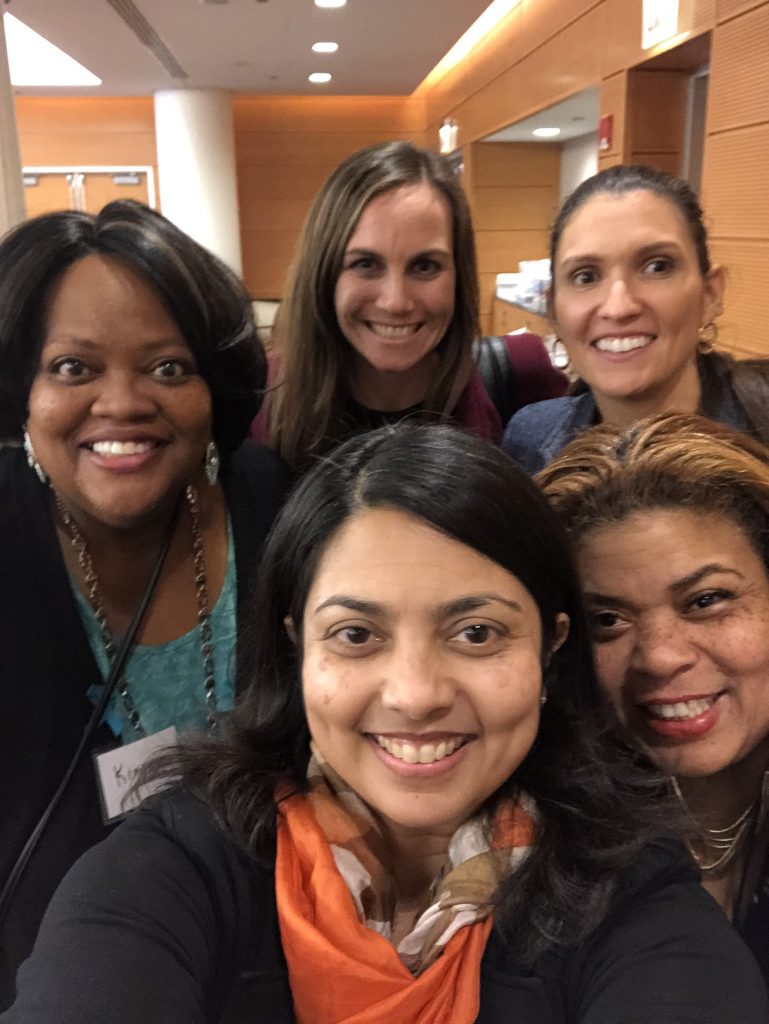
Research Advocates are survivors who work with funding agencies and scientists to help them understand and prioritize the questions that are important to the ovarian cancer community.
